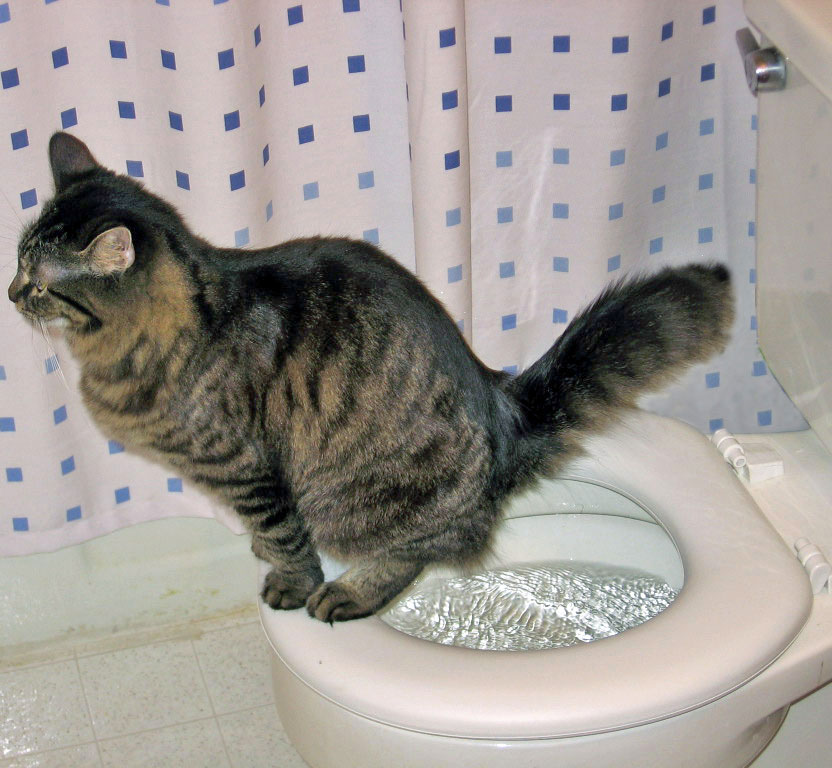Reasons Flushing Cat Poop Down Your Toilet Can Cause Problems - Tips for Safe Handling
Reasons Flushing Cat Poop Down Your Toilet Can Cause Problems - Tips for Safe Handling
Blog Article
Were you hunting for facts Don’t flush cat feces down the toilet?

Introduction
As feline proprietors, it's vital to be mindful of how we get rid of our feline close friends' waste. While it may seem practical to purge pet cat poop down the commode, this practice can have harmful consequences for both the environment and human health and wellness.
Environmental Impact
Flushing feline poop introduces damaging pathogens and parasites right into the supply of water, posing a significant threat to marine communities. These impurities can adversely affect aquatic life and compromise water quality.
Health Risks
In addition to ecological problems, purging pet cat waste can additionally position health risks to humans. Feline feces might include Toxoplasma gondii, a parasite that can create toxoplasmosis-- a possibly extreme disease, particularly for pregnant women and people with damaged immune systems.
Alternatives to Flushing
Thankfully, there are safer and extra liable methods to get rid of feline poop. Consider the adhering to options:
1. Scoop and Dispose in Trash
The most usual approach of throwing away feline poop is to scoop it right into a biodegradable bag and toss it in the trash. Be sure to make use of a devoted clutter scoop and throw away the waste immediately.
2. Usage Biodegradable Litter
Select biodegradable pet cat trash made from materials such as corn or wheat. These clutters are environmentally friendly and can be securely dealt with in the garbage.
3. Bury in the Yard
If you have a backyard, think about hiding feline waste in a designated area far from vegetable yards and water sources. Be sure to dig deep adequate to avoid contamination of groundwater.
4. Set Up a Pet Waste Disposal System
Invest in an animal garbage disposal system specifically created for cat waste. These systems make use of enzymes to break down the waste, lowering odor and ecological impact.
Final thought
Accountable pet ownership prolongs past offering food and sanctuary-- it also includes proper waste management. By avoiding purging cat poop down the bathroom and going with alternate disposal techniques, we can decrease our environmental footprint and shield human health.
Why You Should Never Flush Cat Poop Down the Toilet
A rose by any other name might smell as sweet, but not all poop is created equal. Toilets, and our sewage systems, are designed for human excrement, not animal waste. It might seem like it couldn’t hurt to toss cat feces into the loo, but it’s not a good idea to flush cat poop in the toilet.
First and foremost, assuming your cat uses a litter box, any waste is going to have litter on it. And even the smallest amount of litter can wreak havoc on plumbing.
Over time, small amounts build up, filling up your septic system. Most litter sold today is clumping; it is made from a type of clay that hardens when it gets wet. Ever tried to scrape old clumps from the bottom of a litter box? You know just how cement-hard it can get!
Now imagine just a small clump of that stuck in your pipes. A simple de-clogger like Drano isn’t going to cut it. And that means it’s going to cost you big time to fix it.
Parasitic Contamination
Believe it or not, your healthy kitty may be harboring a nasty parasite. Only cats excrete Toxoplasma in their feces. Yet it rarely causes serious health issues in the cats that are infected. Most people will be fine too if infected. Only pregnant women and people with compromised immune systems are at risk. (If you’ve ever heard how women who are expecting are excused from litter cleaning duty, Toxoplasma is why.)
But other animals may have a problem if infected with the parasite. And human water treatment systems aren’t designed to handle it. As a result, the systems don’t remove the parasite before discharging wastewater into local waterways. Fish, shellfish, and other marine life — otters in particular — are susceptible to toxoplasma. If exposed, most will end up with brain damage and many will die.
Depending on the species of fish, they may end up on someone’s fish hook and, ultimately on someone’s dinner plate. If that someone has a chronic illness, they’re at risk.
Skip the Toilet Training
We know there are folks out there who like to toilet train their cats. And we give them props, it takes a lot of work. But thanks to the toxoplasma, it’s not a good idea.

We had been made aware of that editorial about Don’t flush cat feces down the toilet through someone on a different blog. In case you enjoyed our article please be sure to share it. Many thanks for your time spent reading it.
About This Report this page